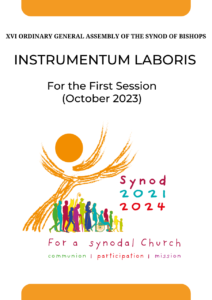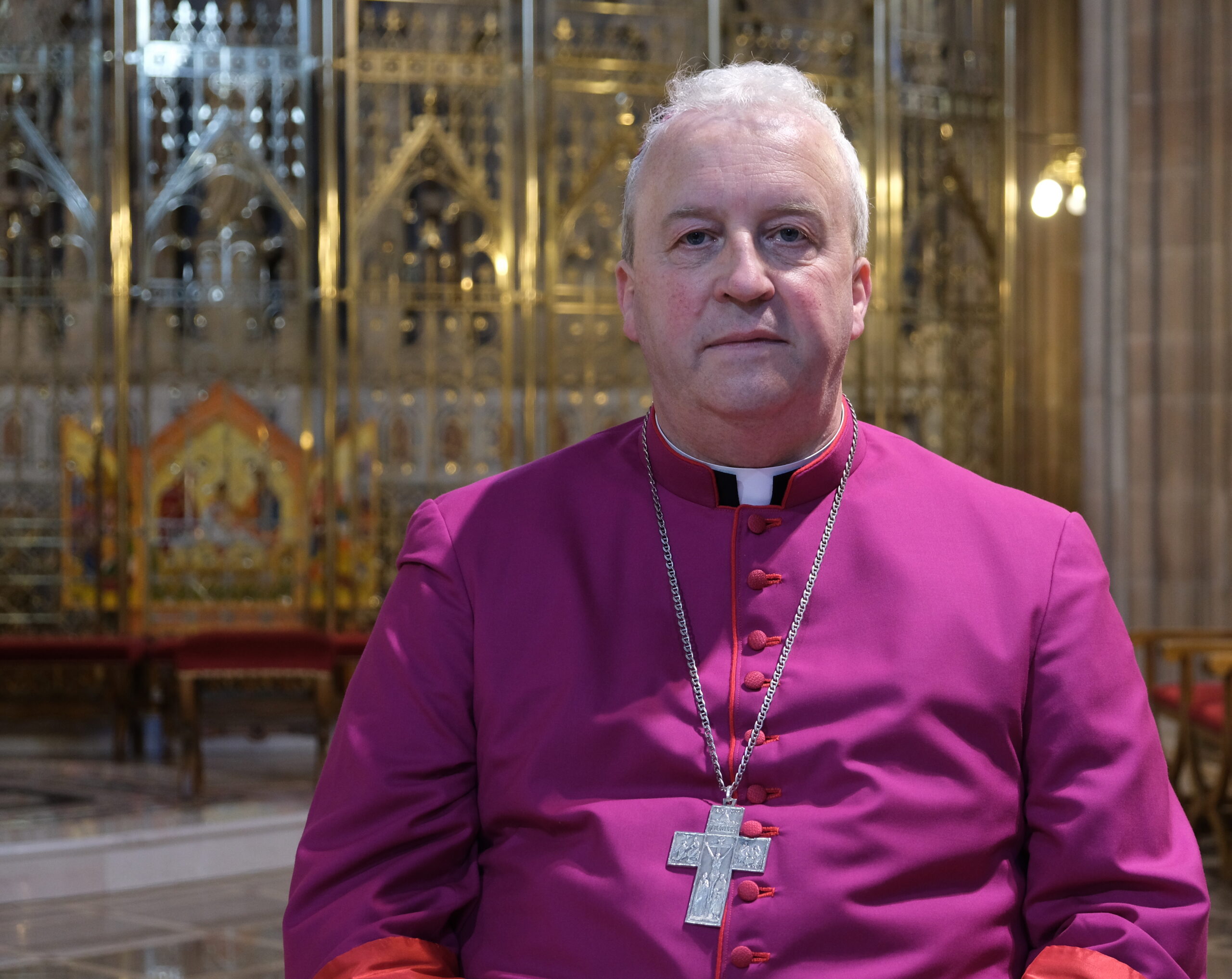Statement of Bishop Michael Router on the Publication of the Instrumentum Laboris for the First Session of the Synod on Synodality
 I welcome the publication yesterday, June 20th, of the Instrumentum Laboris (IL), for the first session of the Synod in October with the theme “For a Synodal Church: Communion, Participation and Mission.
I welcome the publication yesterday, June 20th, of the Instrumentum Laboris (IL), for the first session of the Synod in October with the theme “For a Synodal Church: Communion, Participation and Mission.
The description given to the Document for the Continental Synod (DCS) is also valid for the IL. It “is not a document of the Church’s Magisterium, nor is it the report of a sociological survey; it does not offer the formulation of operational indications, goals and objectives, nor a full elaboration of a theological vision”. This is because it is part of an unfinished process. The IL, however, takes a step beyond the DCS. It draws from the insights of the first consultative phase but also from the work of the Continental Assemblies and articulates some of the priorities that emerged from listening to the People of God. Crucially, the IL avoids presenting them as assertions or stances. Instead, it expresses them as questions addressed to the Synodal Assembly.
The Synodal Assembly will have the task of discerning the concrete steps which enable the continued growth of a synodal Church. These steps will then be submitted to the Holy Father. Through this method of active listening each group will have something to learn, the faithful people, clergy, College of Bishops, and the Bishop of Rome, as they all listen to one another and to the Holy Spirit, “to know what He ‘is saying to the Churches’ (Rev 2:7)”. In this light, the purpose of the IL is not to be a first draft of the Final Document of the Synodal Assembly, rather, it outlines an initial understanding of the synodal dimension of the Church on the basis of which further discernment can be made. The IL was made public to encourage participation in the synodal process at the local and regional levels, while waiting for the outcome of the October Assembly. It provides further material on which the local Churches will be called to pray, reflect, act and make their own contribution.
Section A of the IL outlines a series of fundamental characteristics or distinguishing marks of a synodal Church. It then articulates the awareness that a synodal Church is also marked by a particular way of proceeding. The first phase of the synodal process has shown us that spiritual conversations are the way to continue. Section B of the IL, “articulates, in the form of three questions, the priorities that most strongly emerge from the work of all the continents, thus placing them before the Assembly for discernment”. Five worksheets are prepared for each of the three priorities, allowing them to be approached from different perspectives.
What has emerged strongly from all the continents is an awareness that “a synodal Church is founded on the recognition of a common dignity deriving from Baptism, which makes all who receive it sons and daughters of God, members of the family of God, and therefore brothers and sisters in Christ, inhabited by the one Spirit and sent to fulfil a common mission”. Baptism then is the foundation of true co-responsibility among all the members of the Church, “which is manifested in the participation of all, with the charisms of each, in the mission of the Church and the building up of the ecclesial community”. As awareness of this understanding of baptism increases so does the desire for a Church that is truly synodal in its institutions, structures, and procedures. A synodal Church is a Church where co-responsibility for mission is affirmed, exercised, and practiced. In such a Church the exercise of authority is seen, not as an obstacle, but as a gift. It is modelled on the ministry and service of Jesus who stooped to wash the feet of his disciples (Jn 13:1-11).
The IL poses fifteen questions for the members of the synod to reflect on communion, participation, and mission. These questions cover various topics such as social justice, care for our common home, ecumenism, ministry, authority, decision making, discernment, the role of women, collegiality etc. They will open an interesting and important debate on the future of our Church in a challenging and rapidly changing world. I pray for the success of the synod and the creation of a respectful atmosphere where the issues can be debated in a prayerful and reflective way.
Bishop Michael Router
Auxiliary Bishop of Armagh
The IL can be found at:
(All quotes in the above statement are from the foreword of the Instrumentum Laboris)




You must be logged in to post a comment.